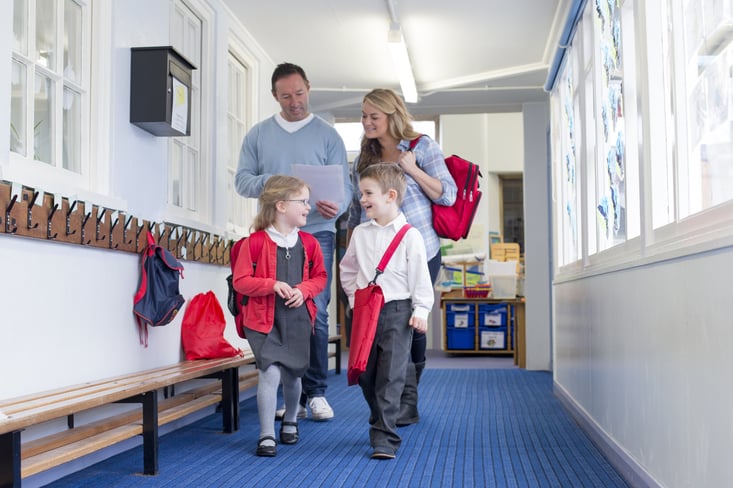
Children’s day nurseries aren’t just for the child’s benefit. As a parent, it’s vital to know that your child is developing and learning to the best of their ability and that they’re well taken care of.
It’s the job of a children’s day nursery, then, to demonstrate this. One way of doing so is through a partnership with parents.
First things first: what is a partnership with parents?
According to the Early Years Foundation Stage (EYFS) framework, a partnership includes ‘parents, families and practitioners working together to benefit children.’ For a partnership to work well, it must be built on trust, transparency and responsibility from all parties involved.
There are many ways practitioners and parents can work together. The EYFS focuses on four elements, including:
- Supporting learning and development
- Sharing information
- Contributing
- Making decisions and advocating different approaches and courses of action
But why is it so important for children’s day nurseries to partner with parents?
#1: Trust
The most important element of any children’s day nursery is trust. Leaving your child is a difficult thing to do, especially at such a young age, and it’s up to the day nursery to show that your child is in a trusting environment.
Not only that, a child needs to feel safe when they’re in an environment without their parents. At Stars, we use key persons to partner children with adults to effectively tailor each child’s development. Not only does this help build trust in the child, it also creates trust for the parents, too.
#2: Involvement
Parents need to get involved at every stage of a child’s development, and a partnership is an ideal way for parents to understand how their child is getting on outside of their care.
But, for this to be fully effective, parents need to be willing to get involved. This means you need to be in regular contact with your child’s school, ensuring that you understand how your child is developing and what you can do to further their learning at home.
#3: Shared expectation
At children’s day nurseries, the expectation is that parents will actively get involved in their child’s learning. For the parent, they expect their child to be left in the right hands, and that those hands are actively progressing their child’s learning and development.
Parent partnerships, then, clarify the expectations for everyone. Good relationships with day nurseries helps you manage your expectations and raise any concerns that you have about their learning. It also allows a school to set their expectation of how involved parents should be outside of the classroom.
#4: Keeping up-to-date
Children learn at different rates. A partnership with parents ensures that each parent is kept up-to-date on their child’s learning and development.
Children’s day nurseries may make changes to the curriculum or their working practices, and it’s important for this to be voiced to the parents. Monthly newsletters are a great way to ensure everyone is kept up-to-date on not only what the children are learning, but also on any changes that are made at school.
Partnership with parents: putting it into practice
There are multiple ways you can begin to put your partnership into practice. A few examples include:
- Daily diaries – development diaries can help both parents and practitioners better understand a child’s rate of development.
- Parents evenings – This allows for practitioners and parents to talk in-depth about a child’s development, helping both parties raise any comments or concerns they may have.
- Coffee mornings and tea parties – Like parents evening, coffee mornings and tea parties are the perfect way to catch up with practitioners and voice your thoughts about your child’s development.
For more information about our partnership with parents here at Stars, read our newsletter.







